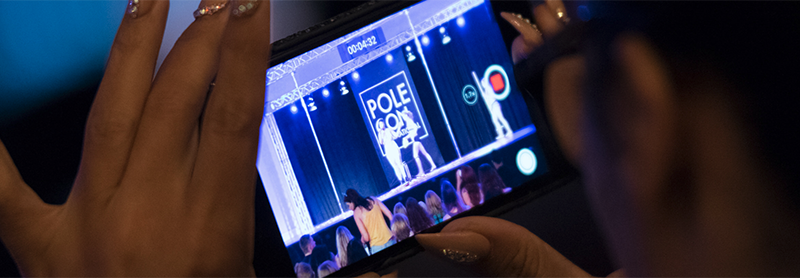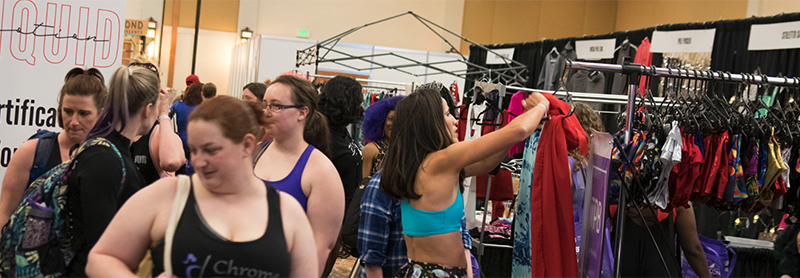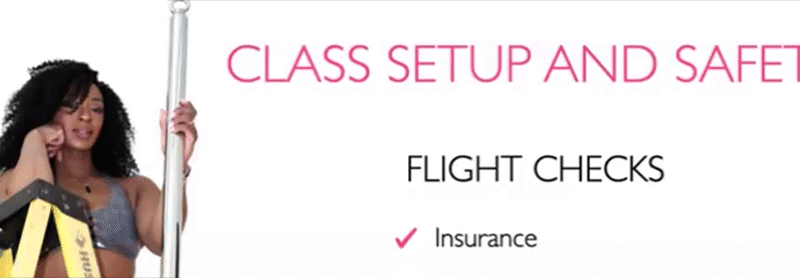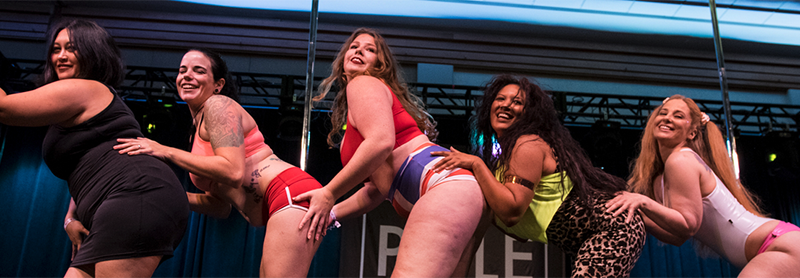A train-cation is a trip (usually away from home) where you focus for a specific…

Why you need a social media policy for your pole dance business
In this post we’ll talk about what a social media policy is, why you might need one for your business and how to create one that is tailored to your needs.
What is a social media policy?
A social media policy is a set of rules that governs how you or your business use and interact with social media. If you have employees or work with contractors, it may also include how they use their social media accounts both professionally and personally. It can be a part of your overall marketing strategy or be part of your employee handbook, especially if creating content is part of working with your company.
Why do you need a social media policy?
The bigger your pole dance business gets, usually the more people interact with it and/or are employed by it. That complexity often also brings more opinions and less clarity on how you want your business to do business and interact with your customer. Having a social media policy document can clarify all responsibilities for social media as well as what content to create that reflects your brand accurately. It can also help protect you from legal or other brand risks.
How do you create a social media policy?
You’ll have to ask yourself several questions to start crafting your policy.
First, ask yourself the basics of who can use your businesses social media accounts:
- Who is responsible for posting?
- On what schedule should they post?
- Are there guidelines for how they should post like using a scheduler tool
- What about the brand voice?
- Are their guidelines for what to post?
Then think about how people interact with your accounts:
- Who should respond to DMs?
- Who should respond to comments?
- Are there standard answers to common questions?
- When should questions be escalated?
Don’t forget about security or legal issues:
- Do you have any security concerns about account access?
- Do you have dual factor authentication turned on?
- What happens if you change who posts regularly? Is there a plan in place for changing or updating passwords in this case?
- Are there any legal concerns or restrictions for posts? What about confidentiality issues?
Make sure your employees understand their role
If you have employees, contractors or other stakeholders involved in your business, make sure they understand how they are involved in your social media.
Even if they aren’t the ones doing the regular posting or interacting, can you use their content that they share on their personal social media?
Ask yourself:
- Is generating content to be used on social media a requirement for employment or involvement with your company?
- Can personal content, especially used on private accounts, be available for your business reuse?
- What are the guidelines for employees/contractors recording content in your space or using your products?
- If someone is employed at multiple companies/studios, are their rules about what they can promote in your space or using your products?
- What happens if someone is no longer involved in your business? Can you still use their previously generated content?
Understanding User Generated Content
User Generated Content or UGC is generally content that someone else, maybe a customer or a fan of your business but not an employee or contractor, makes publicly available and tags your business on a social media platform.
This can be a gray area for marketing and content ownership. The copyright of the content remains with the person who created it (unless they are an employee, or a brand ambassador and you stipulate that you own content created for your brand contractually) BUT you can still share that content on your social media.
Some brands love sharing UGC while other steer clear of it. There is no right answer here, but you should ask yourself the following questions before sharing content:
- Are you encouraging content sharing by using a hashtag?
- Is the content public or set to private? (if private, never use it unless given explicit permission in writing).
- Is this content something that helps my brand or hurts it?
- Do I want to be associated with this person?
In a pole studio situation, pole students are often creating UGC or may be part of the background of someone else’s content. Consider having a model release as part of your waiver documents when someone becomes part of your studio. This will allow you to use that person’s image on social media. If people do not want to be filmed or cannot be on social media because of their job, make sure any filming done in class is announced so anyone who cannot be on film is out of any camera shots. Also consider having spaces or holding classes that do not allow filming.
Creating your social media policy
Once you’ve asked yourself all these questions, you can start to craft your policy with what makes sense for your business. If this seems like a lot of work, start with our template policy and update for your needs (available for IPIA members only, join here).
Make sure to update the policy with any issues specific to your country or jurisdiction as well as those relevant to your business needs.
Consider reviewing your policy regularly and updating it when relevant such as when there is a change in law, change in rules from the social media platform, or a change in your business.
For employees or contractors, consider adding a stipulation in their contract regarding social media posts made for your business as well as any requirements if relevant. See a sample in the social media policy template.
Social media can be a great way to market your business! It can also be a murky area for what is appropriate to share. Always make sure to be clear and to share your policies with relevant people in your business.



